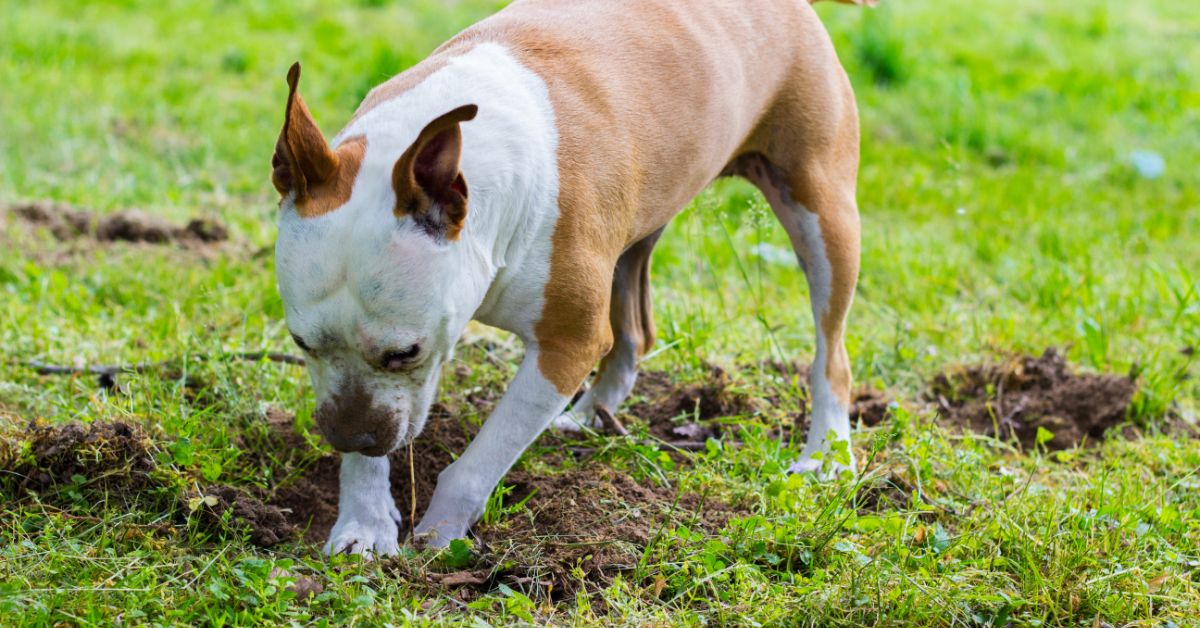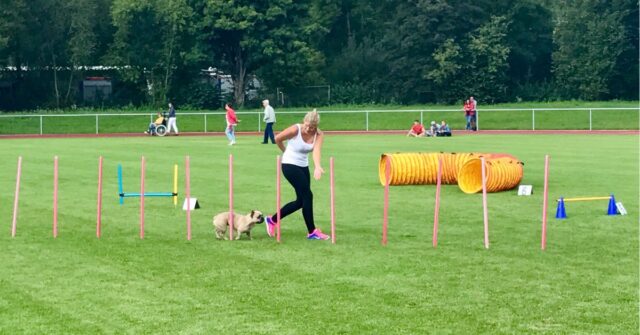Welcome to our comprehensive guide on addressing some of the most common behavioural issues faced by dog owners: digging, barking, and chewing.
This article aims to provide practical, effective solutions that are particularly relevant for our Australian readers.
Introduction to Common Behavioral Problems in Dogs
Dogs exhibit various behaviours that, while natural to them, can often be problematic in human environments. Understanding these behaviours is the first step towards effectively managing them.

Understanding Your Dog’s Behaviour
Behaviour in dogs is influenced by a variety of factors including breed, upbringing, and their environment. Recognizing the root cause of a behaviour is crucial in addressing it appropriately.
The Role of Breed and Environment
Different breeds have different behavioural tendencies, and the Australian environment can also play a significant role in shaping your dog’s behaviour.
For instance, some breeds are more prone to digging due to their hunting instincts.
Section 1: Addressing the Issue of Digging
Digging can be a frustrating issue for dog owners, particularly when it leads to destroyed gardens or escape attempts.

Why Do Dogs Dig?
Dogs may dig for various reasons such as seeking comfort, hunting, entertainment, or escape. Understanding why your dog digs is key to solving this issue.
Preventive Measures and Solutions
There are several strategies to discourage digging, from providing alternative activities to modifying the environment.
Creating a Designated Digging Zone
One effective solution is to create a specific area in your garden where your dog is allowed to dig. This satisfies their digging instinct without damaging your entire yard.
Increasing Physical and Mental Stimulation
Often, dogs dig out of boredom or excess energy. Ensuring they get adequate physical and mental exercise can significantly reduce digging behaviour.
Success Stories from Australia
Many Australian dog owners have successfully managed their dogs’ digging behaviours through a combination of training, environmental changes, and an understanding of their pet’s needs.
Section 2: Managing Excessive Barking
Excessive barking can be a sign of underlying issues such as anxiety, territorial behaviour, or boredom.

Identifying the Causes of Barking
Understanding the triggers for your dog’s barking is essential. Is it due to strangers, boredom, or a response to other animals?
Effective Training Techniques
Training your dog to respond to commands and managing their environment can greatly reduce instances of unnecessary barking.
Positive Reinforcement and Consistency
Using positive reinforcement techniques, such as treats and praise, can effectively train your dog to stop barking on command. Consistency in training is key.
Dealing with Separation Anxiety
Separation anxiety is a common cause of excessive barking. Gradual training to help your dog become comfortable with being alone can alleviate this issue.
Australian Dog Trainer Insights
Australian dog trainers often highlight the significance of environment and lifestyle in influencing a dog’s barking behaviour.
They recommend tailored strategies that consider the typical Australian setting, whether urban or rural.
For instance, in urban areas where homes are closer together, dogs might bark more due to increased stimuli like passing pedestrians or other pets.
Rural settings might present challenges with wildlife that can trigger barking. Local trainers suggest specialized training methods to help dogs differentiate between normal and alarming stimuli.
Additionally, they emphasize understanding the breed-specific traits common in Australia, such as the heightened territorial instincts of Australian Cattle Dogs, which might contribute to excessive barking.
Incorporating these insights into training can lead to more effective management of barking behaviours specific to Australian dogs’ lifestyles and environments.
Section 3: Curbing Chewing Behaviour
Chewing is a natural dog behaviour but can become problematic when it’s directed at inappropriate items.

Understanding Why Dogs Chew
Dogs chew for various reasons, including teething, exploration, boredom, or anxiety. Identifying the cause is crucial to addressing the problem.
Choosing the Right Chew Toys
Providing appropriate chew toys can redirect your dog’s chewing habit away from unwanted items.
Safe and Popular Options in Australia
In Australia, there are numerous safe and appealing chew toy options available, suited for dogs of all sizes and chew styles.
DIY Chew Toys: Engaging and Affordable
Creating DIY chew toys can be a fun and cost-effective way to keep your dog entertained and satisfy their chewing needs.
Training Tips to Discourage Inappropriate Chewing
Training your dog to understand what is and isn’t acceptable to chew is important. This can be achieved through positive reinforcement and consistent training.
Integrating Behavioural Training into Daily Life
Integrating training into your daily routine ensures that good behaviour becomes a part of your dog’s lifestyle.
Creating a Routine
A consistent routine helps your dog understand what to expect and when, leading to a more relaxed and well-behaved pet.

Role of Diet and Exercise
A balanced diet and regular exercise play a vital role in your dog’s overall behaviour and well-being.
Conclusion: Maintaining Positive Changes
Addressing behavioural issues in dogs is an ongoing process that requires patience, understanding, and consistency.
Continued Training and Support
Continuing training and adapting strategies as needed is key to maintaining positive changes in your dog’s behaviour.











